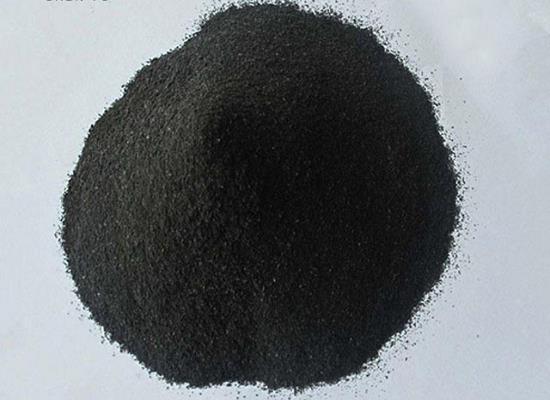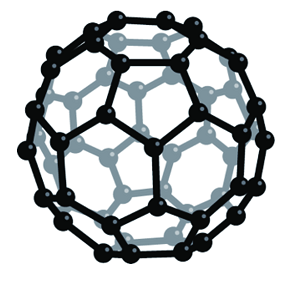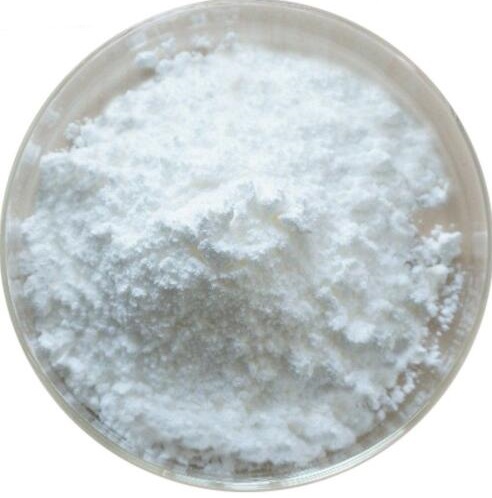Unveiling the Potential of Fullerene C60: A Revolution in Material Science and Beyond
Introduction
In the landscape of chemical discovery, few molecules have sparked as much intrigue and potential as Fullerene C60. Discovered in 1985 by a team of visionary scientists—Harold Kroto, James Heath, Sean O'Brien, Robert Curl, and Richard Smalley—this molecule revolutionized our understanding of carbon's capabilities. Comprising 60 carbon atoms arranged in a hollow sphere, Fullerene C60, often referred to as "Buckminsterfullerene," mirrors the geodesic domes designed by architect Buckminster Fuller, from which its name is derived. Its discovery not only marked a significant milestone in nanotechnology but also opened new avenues in material science, offering unprecedented opportunities for advancements in numerous fields.
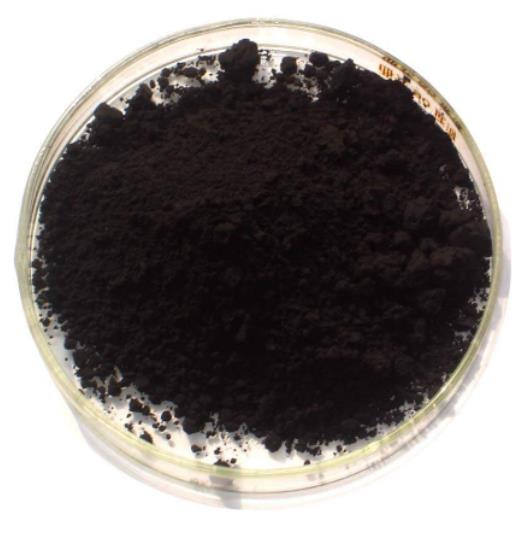
Figure 1 Characteristics of Fullerene C60
Fullerene C60 Overview
At the heart of Fullerene C60's allure is its distinctive structure—a perfect symmetry of carbon atoms that form a sphere, making it the first of its kind identified in the Fullerene family. This configuration is not just aesthetically pleasing; it imparts Fullerene C60 with remarkable stability and a set of properties that are a boon for scientific research. The molecule acts as a powerful antioxidant, capable of withstanding high temperatures and pressures, while its ability to conduct electricity places it at the forefront of materials science, particularly in the development of nanotechnology and renewable energy solutions.
The importance of Fullerene C60 extends beyond its physical and chemical properties; its discovery has been a catalyst for exploring other carbon-based materials, significantly impacting how scientists view the potential of carbon. The research into Fullerene C60 and its variants has led to groundbreaking developments in electronics, photovoltaics, and medicine, showcasing the molecule's versatility across different domains.
As we delve deeper into the specifics of Fullerene C60's mechanism of action and its wide-ranging applications, it becomes clear that this molecule is not just a cornerstone of nanomaterials but a beacon of future innovations in science and technology. The following sections will explore the intricate ways Fullerene C60 interacts at the molecular level, its role in current and future technological advancements, and the best practices for its storage and preservation, shedding light on its enduring significance in the realm of chemistry.
Mechanism of Action
The unique molecular structure of Fullerene C60 bestows it with extraordinary capabilities, particularly in its interaction with other molecules and radicals. At its core, Fullerene C60 operates through a mechanism that can be best understood through its ability to act as a radical sponge. Its hollow cage-like structure allows for the temporary trapping of free radicals, a property that underpins its potential as a powerful antioxidant. This attribute is critical in minimizing oxidative stress, a common pathway for cell damage and aging, making Fullerene C60 a subject of intense study in pharmacology and cosmetic applications.
Furthermore, Fullerene C60 exhibits a remarkable ability to accept electrons, making it an ideal candidate for use in organic photovoltaic cells. By facilitating a more efficient transfer of electrons, it enhances the conversion of sunlight into electricity, promising a leap forward in solar energy technologies. The molecular dynamics of Fullerene C60, characterized by its high electron affinity and unique shape, enable a degree of interaction with light and matter that was previously unattainable, setting the stage for innovations in energy storage and conversion.
Applications
The applications of Fullerene C60 span a wide array of fields, underlining its versatility and potential for transformative impacts on technology and society. In material science, the addition of Fullerene C60 to various materials can significantly enhance their strength, durability, and conductivity. This has led to its incorporation into new types of composites and coatings, promising to revolutionize industries from construction to electronics by making materials lighter, stronger, and more energy-efficient.
In the realm of medicine, Fullerene C60's antioxidant properties are being harnessed to develop novel therapeutic agents. Its ability to selectively interact with and neutralize free radicals offers a pathway to treatments for conditions associated with oxidative stress, such as neurodegenerative diseases and cancer. Moreover, the molecule's capacity to cross biological barriers without inducing toxicity is paving the way for its use in drug delivery systems, potentially enabling targeted therapies with minimized side effects.
The energy sector also stands to benefit greatly from Fullerene C60. Its application in the development of organic photovoltaics is particularly promising, offering a more flexible and less expensive alternative to traditional solar panels. Additionally, Fullerene C60 is being explored as a component in the next generation of batteries and supercapacitors, which could significantly increase energy storage capacities and efficiency, driving forward the adoption of renewable energy sources.
Storage Methods
Ensuring the stability and reactivity of Fullerene C60 for research and application requires adherence to specific storage conditions. Light and air exposure can degrade Fullerene C60, compromising its integrity. It is recommended to store it in a cool, dark place, ideally under inert atmosphere conditions, such as in argon or nitrogen gas, to prevent oxidation. The material should be kept in tightly sealed containers to minimize exposure to moisture and air, thereby preserving its unique properties and extending its usability.
Temperature control is also crucial; Fullerene C60 should be stored at temperatures below 30°C to prevent sublimation. Adhering to these storage guidelines ensures that Fullerene C60 remains stable, maintaining its distinctive structure and properties for future scientific exploration and technological application.
The exploration of Fullerene C60, from its discovery to its wide-ranging applications, underscores its significance in advancing the frontiers of science and technology. Its unique properties and versatility promise to continue driving innovations across various fields, making it a molecule of enduring interest and potential. As research and development in Fullerene C60 progress, it stands as a testament to the boundless possibilities inherent in the world of chemistry.
References
[1]David W I F, Ibberson R M, Dennis T J S, et al. Structural phase transitions in the fullerene C60[J]. Europhysics Letters, 1992, 18(3): 219.
[2]Ruoff R S, Tse D S, Malhotra R, et al. Solubility of fullerene (C60) in a variety of solvents[J]. The Journal of Physical Chemistry, 1993, 97(13): 3379-3383.
Related articles And Qustion
Lastest Price from Fullerene C60 manufacturers

US $0.00/KG2025-04-24
- CAS:
- 131159-39-2
- Min. Order:
- 1KG
- Purity:
- 99%
- Supply Ability:
- 1000KG
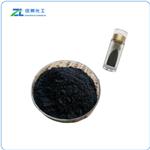
US $50.00/kg2025-04-15
- CAS:
- 131159-39-2
- Min. Order:
- 1kg
- Purity:
- 99%
- Supply Ability:
- 5000kg/Week

